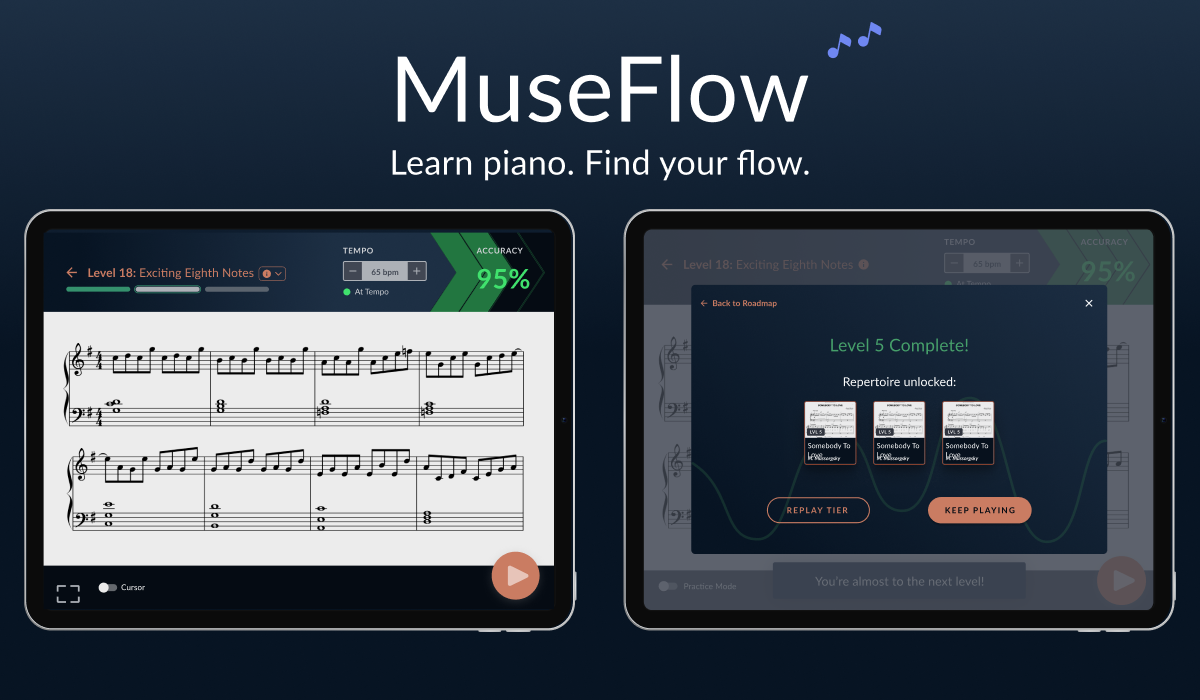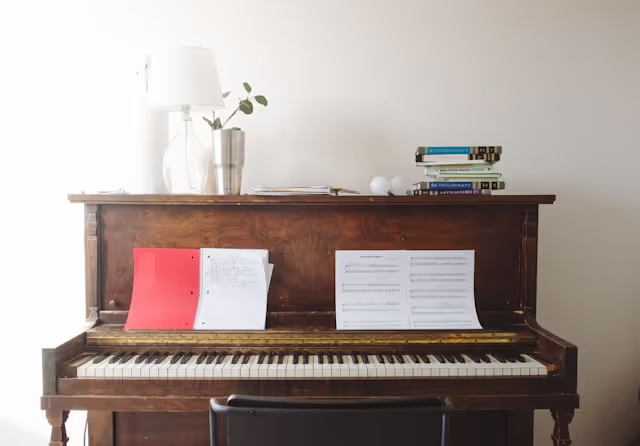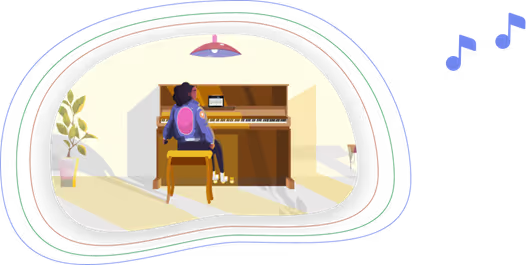What is the Best Piano Learning Software for MIDI? A Guide to Evaluating Your Options
Digital music education has expanded rapidly, and MIDI keyboards have become a common entry point for adult piano learners. With so many learning platforms available, choosing the right software can significantly shape early progress, motivation, and long-term consistency. Rather than focusing on any single “best” option, it’s more useful to understand what features actually matter when learning piano with a MIDI keyboard.
Most modern piano learning platforms share similar goals but implement key features—such as feedback, pacing, and content structure—quite differently. The sections below outline the core criteria that experienced educators and adult learners typically look for. One platform, MuseFlow, is referenced as a practical example of how these ideas can be applied in real software.
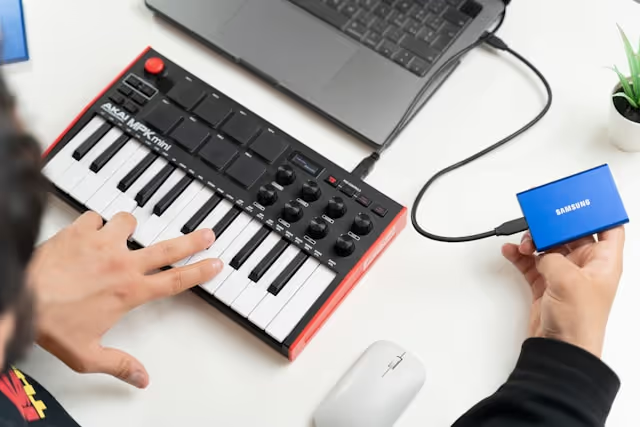
1. Adaptive Learning Based on Performance Data
Effective piano learning software should respond to how a learner actually plays, not just follow a fixed syllabus. Adaptive systems adjust difficulty based on accuracy, timing, and consistency, helping learners stay challenged without becoming overwhelmed.
Educational research on skill acquisition shows that appropriately scaled challenges and clear goals improve retention and motivation, and this principle is supported by studies on adult learning dynamics and instructional design. In practice, this means exercises should become easier or harder depending on recent performance, rather than advancing on a preset schedule.
Some platforms, including MuseFlow, apply performance tracking to adjust lesson difficulty dynamically, which can help learners stay within an effective learning range instead of repeating material that is either too easy or too demanding.
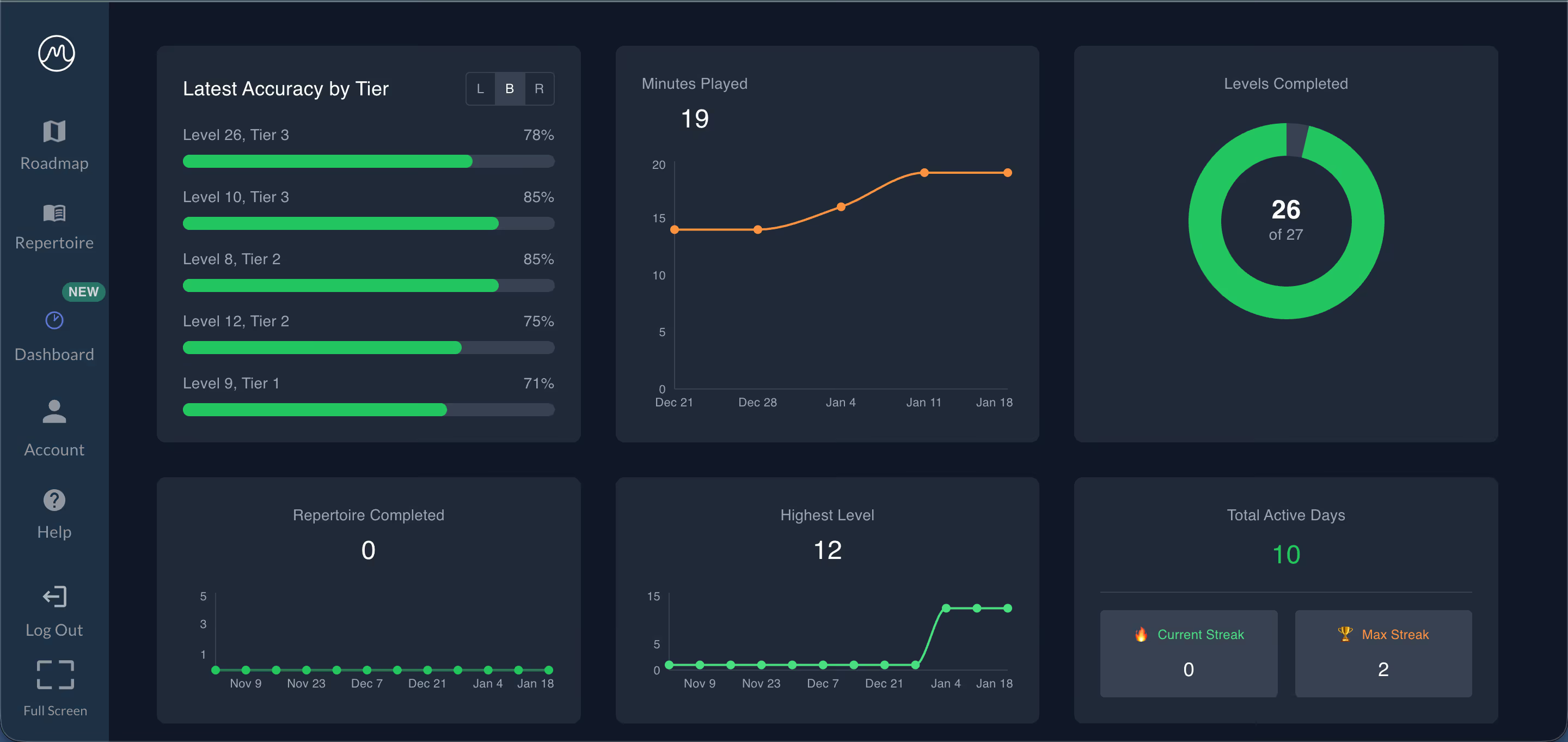
2. Real-Time Feedback During Practice
Immediate feedback is one of the most valuable features a MIDI-based learning system can offer. When software detects pitch, timing, and rhythmic accuracy in real time, learners can correct mistakes as they happen rather than reinforcing errors over multiple sessions.
This type of feedback is particularly helpful for beginners, who often struggle to self-diagnose issues while playing. Clear visual or auditory indicators allow learners to understand what went wrong and where, without interrupting practice flow.
Platforms like MuseFlow visualize note accuracy and timing during exercises, illustrating how real-time feedback can function as a continuous guidance mechanism during independent practice sessions.
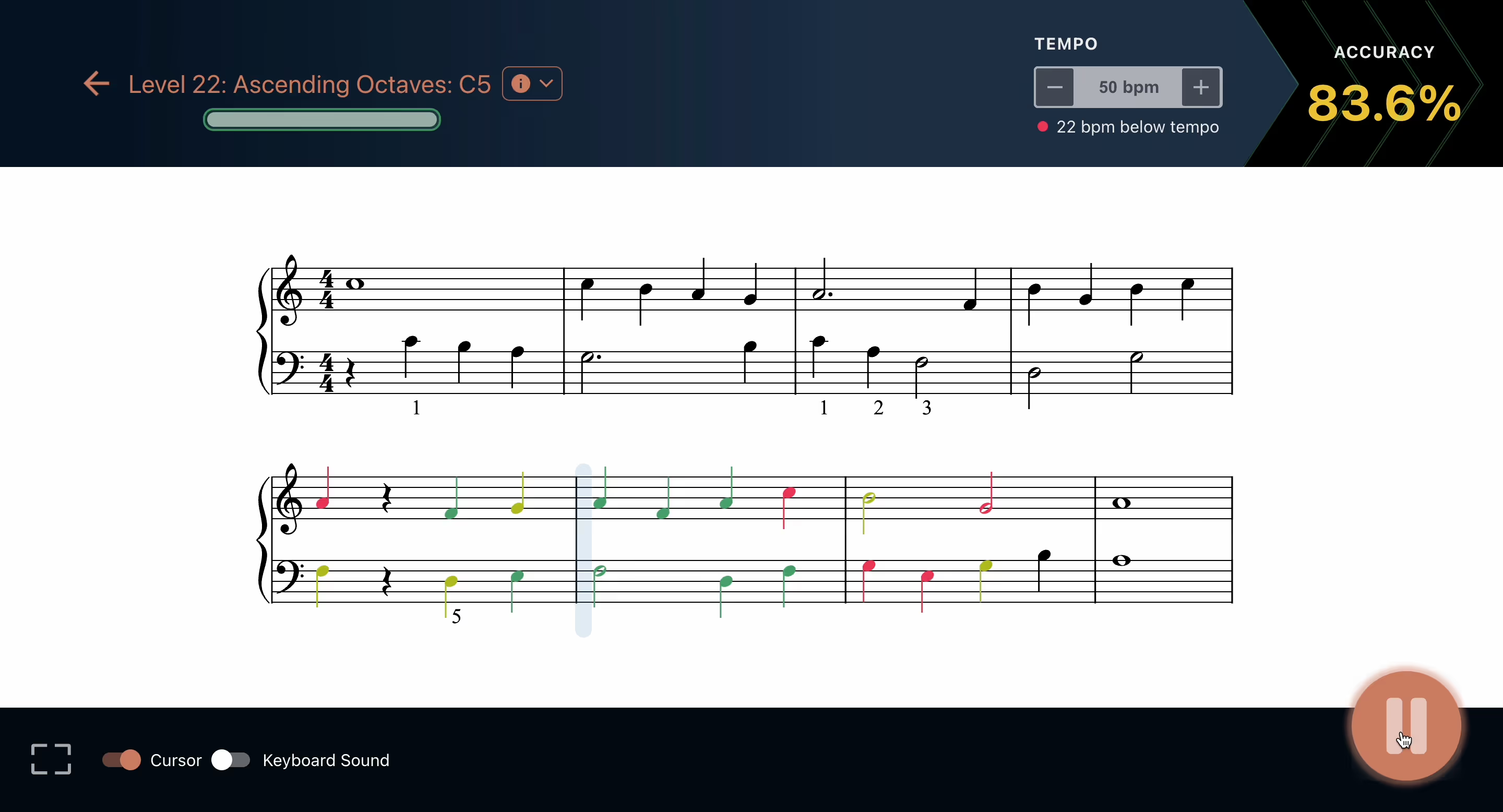
3. Engagement Without Distraction
Sustained practice depends on engagement, but engagement doesn’t require excessive gamification. Effective learning tools use simple progress indicators—such as completion tracking or gradual difficulty increases—to maintain motivation without turning practice into a distraction.
Adult learners, in particular, tend to respond better to clear progress signals than to novelty alone. Structured challenges and visible improvement can reinforce consistency while keeping attention focused on musical fundamentals.
Some modern piano learning platforms incorporate light gamified elements—such as progress markers or skill milestones—to encourage regular practice while keeping the emphasis on musical development and who knows, maybe you'll discover a fun piano learning method in the process!
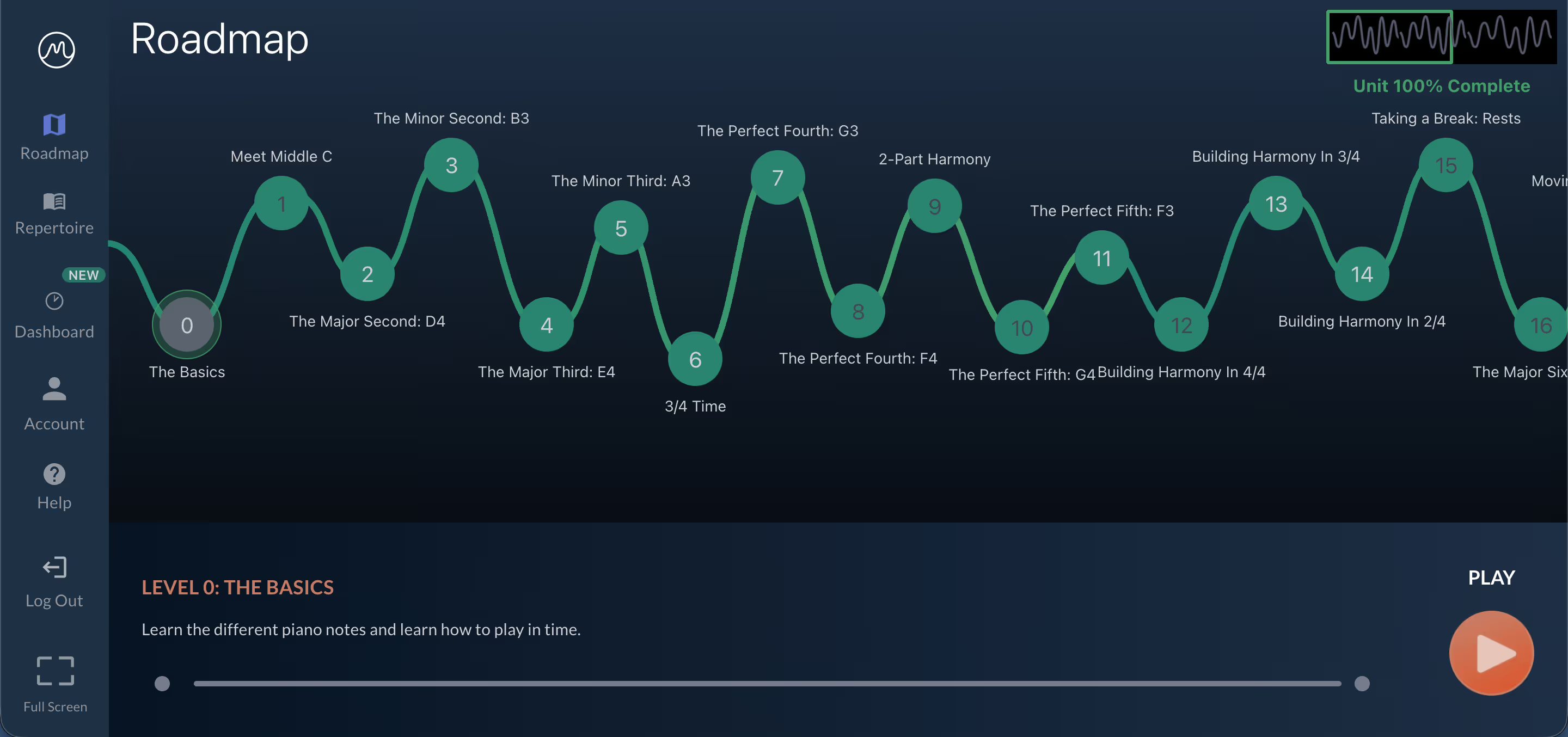
4. A Varied but Structured Content Library
A strong learning platform should balance structure with choice. Learners benefit from a curated progression of exercises, but also from access to repertoire that feels musically rewarding.
Exposure to varied musical styles helps reinforce reading skills, rhythm, and coordination, while structured exercises isolate specific techniques. The most effective systems integrate both, allowing learners to apply technical skills directly to musical pieces.
MuseFlow, for example, combines targeted skill exercises with a rotating repertoire library, illustrating how variety and structure can coexist without overwhelming the learner.
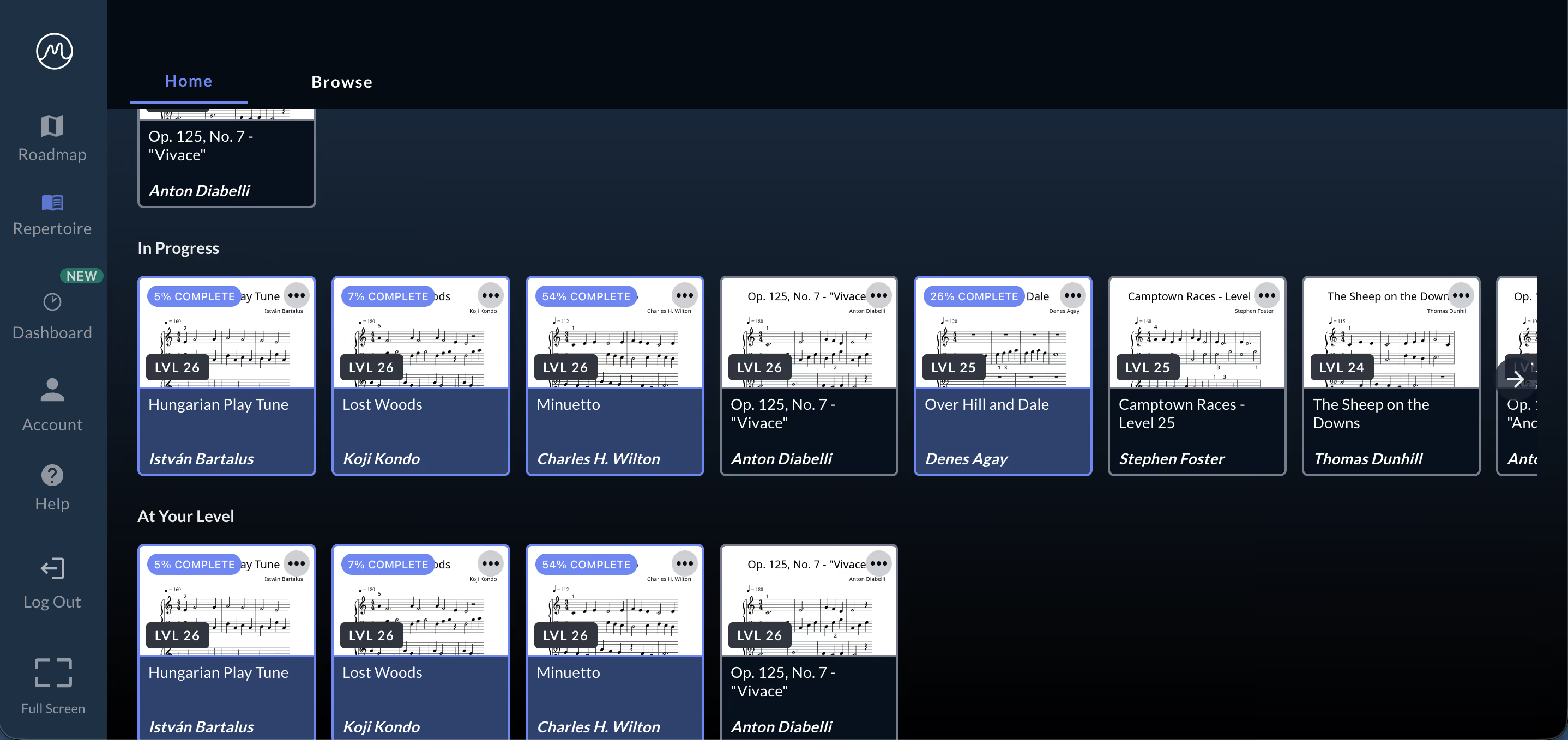
5. Flexibility That Supports Consistency
One of the main reasons adults abandon new instruments is inconsistent practice. Software that supports short, flexible sessions lowers the barrier to daily engagement.
Consistency matters more than session length, and platforms that allow learners to resume exactly where they left off help reduce friction. This approach aligns with adult learning research showing that visible progress and self-paced control increase persistence over time.
Self-directed MIDI learning tools, including MuseFlow, demonstrate how flexible session design can support regular practice without rigid scheduling demands.
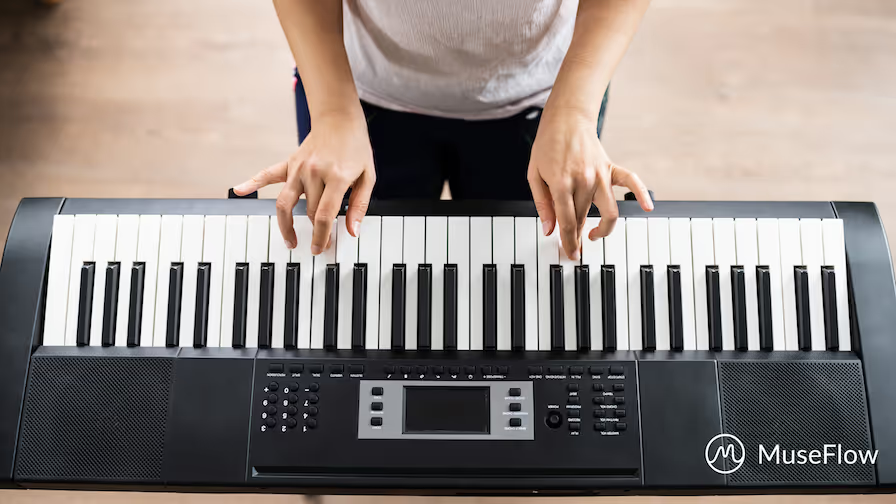
Conclusion: Bringing the Criteria Together
Evaluating piano learning software through these criteria—adaptive pacing, real-time feedback, focused engagement, structured variety, and flexible practice—provides a clearer framework than searching for a single “best” option.
Different platforms emphasize these elements in different ways, and the right choice depends on learning style, goals, and available practice time. Used here as an illustrative example, MuseFlow shows how these principles can be implemented in a MIDI-based learning environment, but the framework itself applies broadly across modern piano learning tools.
Understanding why these features matter allows learners to make more informed decisions—and ultimately build a practice routine that is sustainable, effective, and musically rewarding.


.svg)

.jpg)

